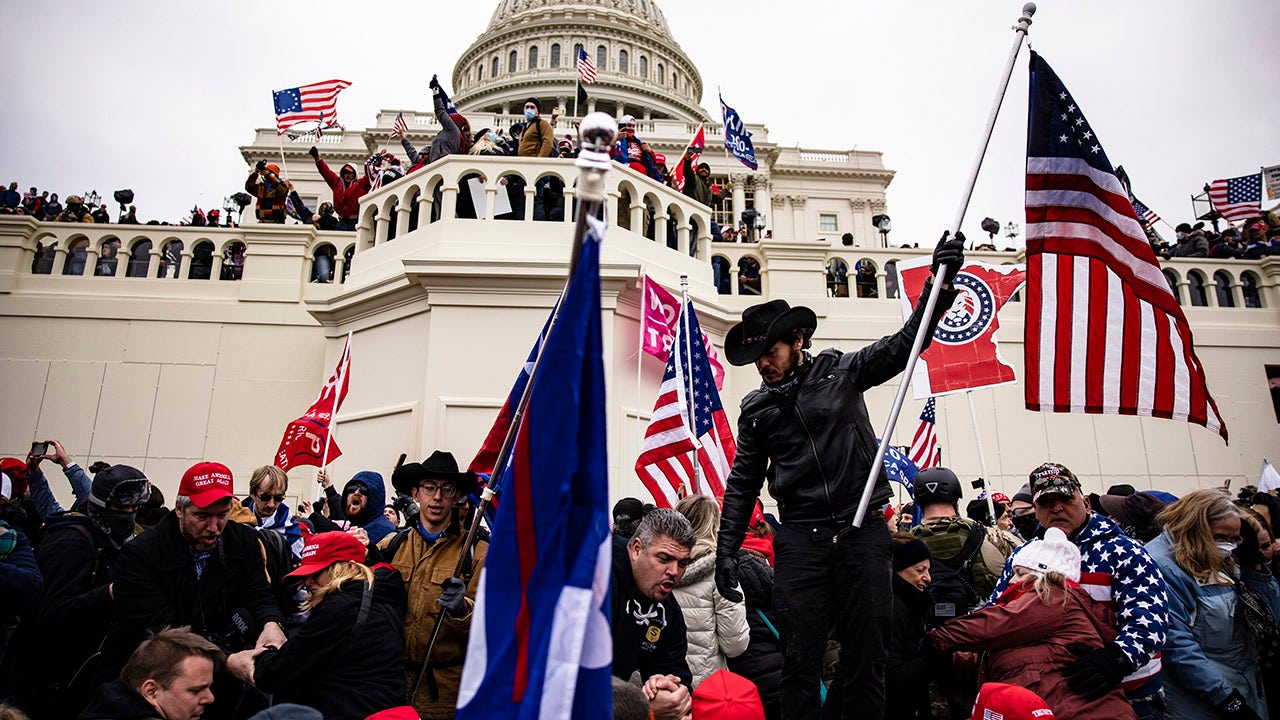Here’s why pardoned Jan. 6 rioters almost certainly will avoid state prosecution

The aftermath of the Jan. 6 Capitol riots continues to unfold as prosecutors across the country are exploring potential state charges against individuals who were granted clemency by former President Donald Trump. While more than 1,500 defendants were pardoned or had their sentences commuted in the wake of the insurrection, some of those who were involved in violent crimes may still face legal consequences at the state or local level.
Philadelphia District Attorney Larry Krasner has indicated that his office is looking into the possibility of bringing state charges against Pennsylvania residents who were pardoned by Trump. This includes individuals like a Proud Boys leader from Philadelphia who was sentenced to 15 years for seditious conspiracy and a man from Pittsburgh who was sentenced to 14 years for assaulting police officers during the Capitol breach.
Krasner believes that there is a pathway for charging these individuals at the state level, not just in Pennsylvania but potentially in other states as well. He points to evidence like text messages, phone calls, and emails that could be used to establish conspiracy charges against the defendants. However, Krasner has not provided specific details on how or if his office will move forward with these potential state charges.
One of the main legal hurdles that prosecutors may face in bringing state charges against Jan. 6 rioters is the concept of double jeopardy, which prevents individuals from being tried twice for the same crime. In order to bring new charges at the state level, prosecutors must show that the offenses are substantially different from the federal charges that were already brought against the defendants. This could prove challenging, as the Capitol grounds fall under federal jurisdiction, making it difficult to isolate conspiracy charges at the state level.
Despite these legal complexities, Krasner and other prosecutors remain committed to holding individuals accountable for their actions on Jan. 6. While it is unclear how successful these efforts will be, there is a growing sentiment that those who committed crimes during the Capitol riots should face consequences at both the federal and state levels.
In the wake of Trump’s pardons, Republicans have been forced to navigate a delicate line between supporting law enforcement and defending the former president’s actions. Some, like Vice President JD Vance, have criticized the pardons of violent offenders, while others, such as House Speaker Mike Johnson, have refrained from second-guessing Trump’s decisions.
As the legal proceedings continue to unfold, the debate over accountability for the Jan. 6 Capitol riots is likely to intensify. While some defendants may have been granted clemency by Trump, it appears that their legal ordeal may not be over just yet.




